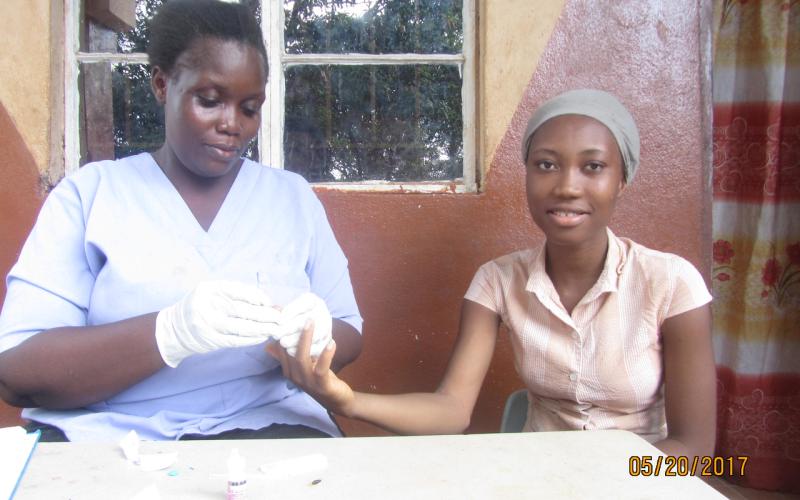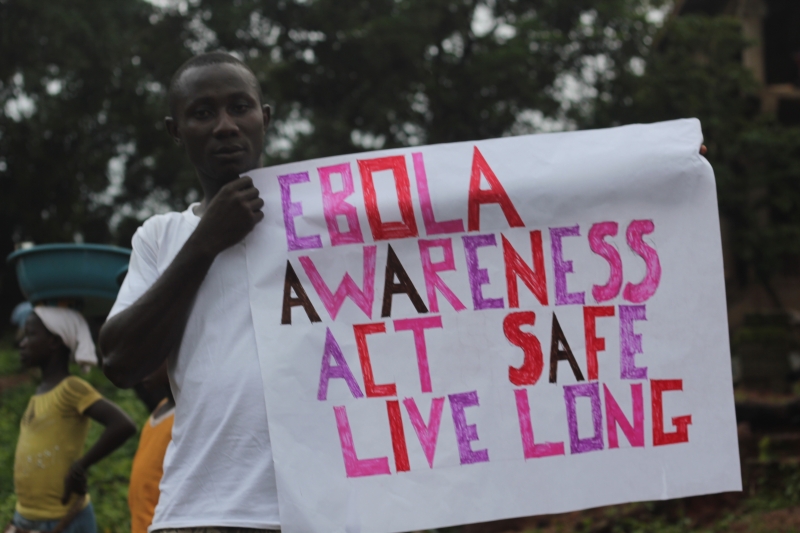
Millions of people in West African nations are bracing themselves in the face of the worst Ebola outbreak in human history. To date, the outbreak has led to 2,100 deaths. Over 3,000 have been infected. As Ebola makes its way from remote towns and villages into major cities, the World Health Organization predicts that up to 20,000 people may be affected before the outbreak ends.

This unprecedented death toll is devastating to say the least; but as entire nations come to a standstill in the face of Ebola, the social, economic and political effects could derail entire populations for years and decades to come.
As the deadly virus ravages through families, towns and entire nations, life in Sierra Leone and other affected countries has changed substantially. The pain suffered by those who have lost loved ones cuts across social, economic and religious lines. But in countries that lack the basic infrastructure needed to combat a deadly, fast moving virus, the effects of Ebola are everywhere, making a marked difference in the very fabric of society.
Once crowded streets and public spaces have thinned out. Meanwhile handshakes and hugs have been replaced with a brush of the elbow or wave of the hand as people attempt to avoid infection. Banks, cinemas and other businesses have cut hours or closed all together to limit the spread of the virus, and large public gatherings in Sierra Leone have been outlawed. In many areas, streets and other public places have become largely deserted and once bustling, lively cities feel more like ghost towns.
In villages, towns and cities across affected countries, trucks with loudspeakers roam streets instructing people to “Wash your hands!” Posters that read “Ebola is real!” wallpaper building and radio ads alert people to the virus’s symptoms: headache, fever, nausea and vomiting. Everywhere you go, chlorine buckets sit outside restaurants and businesses so that people can wash their hands.
Nigeria has delayed the beginning of the school year until October 13th in hopes of curtailing the spread of Ebola. Sierra Leone has instituted a country-wide lockdown and will not allow citizens to leave their homes between September 18th and September 21st for the same reason.
If Ebola has left entire nations suspended in an eerie half-life, the fast-spreading virus is leaving an equally –if not more- chilling mark on economies. Sierra Leone, Liberia and Guinea represent three of the poorest countries in the world. Its citizens, who already struggle to survive, have been thrown deeper into insecurity by the Ebola outbreak and recovery could take years.
Borders have been closed, markets have been shut down, movement of people has been greatly restricted and many living in affected areas are now under complete quarantine. As a result, jobs have been lost and livelihoods destroyed. Educational pursuits have been indefinitely put on hold as countless schools remain closed. Shortages of basic goods, foodstuffs and medical equipment have been worsened by a decision by some airlines to stop flying to the worst hit countries. This has made foodstuffs and other basic goods scarce around the country and has brought already impoverished countries to an economic standstill.
As noted by the Liberian Minister of Finance in a recent op-ed, Ebola has dealt a "harsh blow for a country that had been recovering from the economic damage done by more than a decade of conflict."
Some experts warn that the outbreak could destabilize governments in the region. It is already causing widespread panic and disruption. Liberia and Sierra Leone, two of the countries most affected by the Ebola outbreak, are both recovering from years of brutal civil war and conflict. The tenuous steps citizens have made to recover have been devastated by Ebola in one fell swoop and threaten instability for years to come.
Ebola is a virus that knows no mercy. It’s highly contagious, it’s deadly and it has the real potential to rip entire societies apart at the seams. Treating it is difficult. In the past four weeks, there has been a 50% spike and the industry experts are sounding the alarm that the death toll may get a lot higher before the end. As the virus continues to spread, the impact on society will be great.
But in the past few weeks people are also starting to see reason to hope. Desperately needed supplies like chlorine, protective clothing, masks and latex gloves are making their way into Ebola ravaged countries. Efforts to educate the public about Ebola are starting to see results, as people learn how to protect themselves and how to keep from spreading the virus. Survivors of the deadly disease are starting to leave treatment centers with their certificates of health. They are going home to let others know that Ebola is a threat, but that it can be conquered. If efforts to educate people and properly outfit them to fight the outbreak continue, there is a chance that thousands of people can be saved. There is still a chance that fragile societies might overcome the virus before it undermines years of development. Truly, we are at a critical tipping point in the fight against Ebola.
Develop Africa is working with partners on the ground in Sierra Leone to distribute much needed protective equipment and resources to prevent further spread of the disease. Funding is also providing for sharing of information and sensitization so that people can take preventative action to protect themselves from infection. Please consider making a donation in any amount to help save potentially thousands of people from infection and possible death.
9.8.14
Written by Stephanie Ames for Develop Africa

